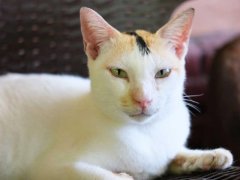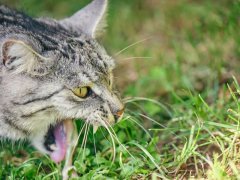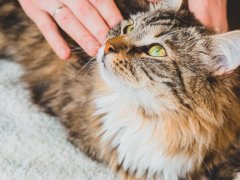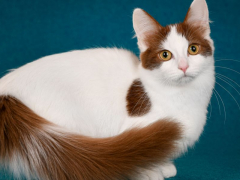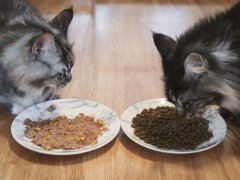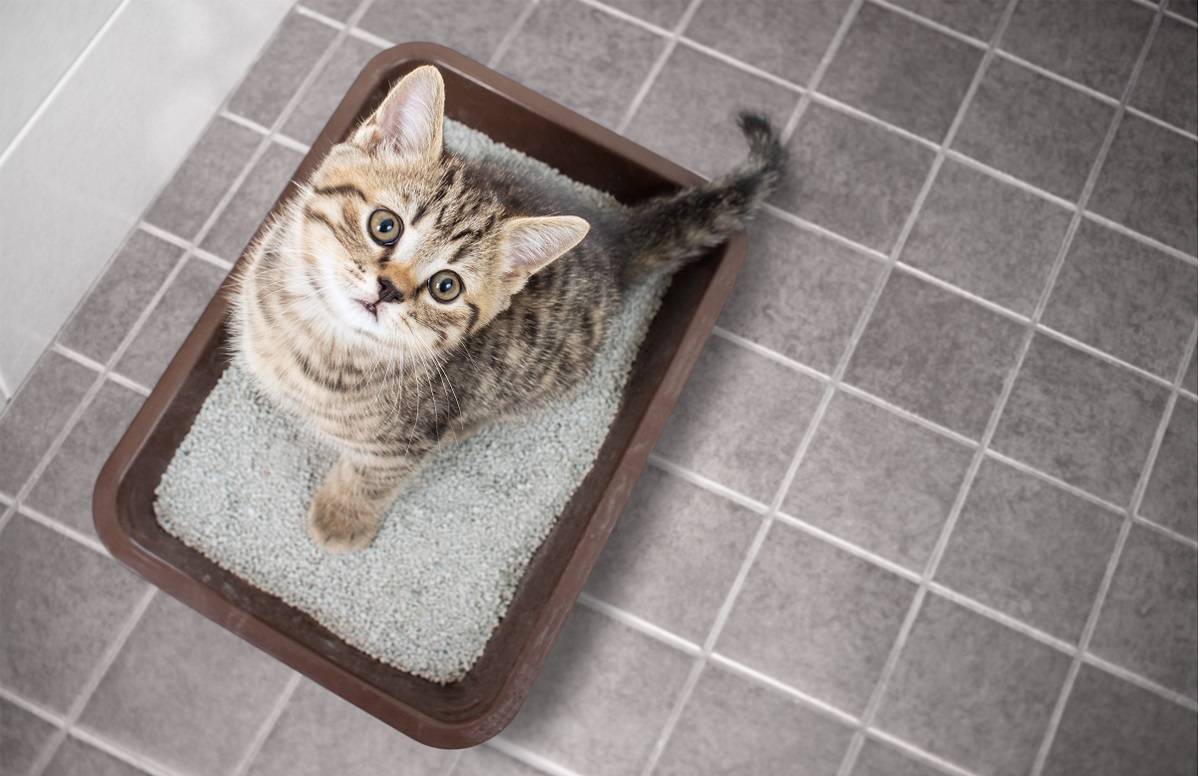
Andrey_Kusmin / Shutterstock.com
Kitten diarrhea is a very common problem that most kittens will experience at least once. Luckily, many of these incidents are mild and self-limiting, with a full recovery occurring in a few days. Mild cases of kitten diarrhea are often caused by dietary issues or stress.
However, kitten diarrhea can be more serious, involving infections, intestinal parasites, and other more serious gastrointestinal conditions, and these kittens will need veterinary attention. In this article, discover what causes diarrhea in kittens, how you can help at home, and when to seek advice from a veterinarian.
Causes of Diarrhea in Kittens
Kitten diarrhea is common and most often has a dietary cause, such as certain sensitivities or abrupt food changes. However, it can be a sign of infection, parasites, or even more serious health concerns. Let’s have a look at some reasons why your kitten might have diarrhea.
Your Kitten’s Diet
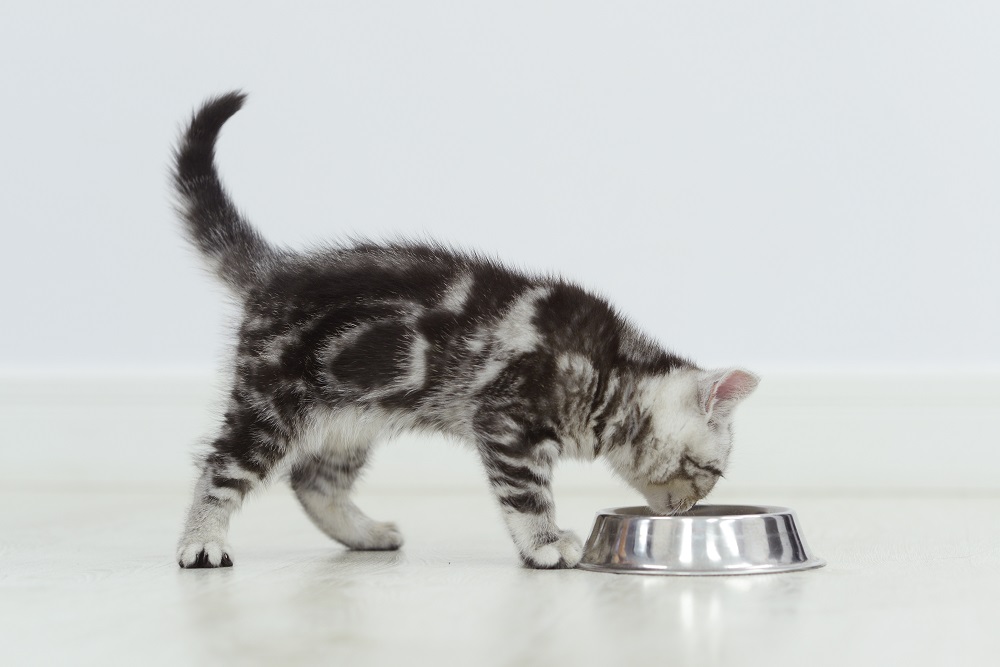
Dietary problems are the most common cause of kitten diarrhea. Ermolaev Alexander / Shutterstock.com
Kittens have sensitive, growing tummies that need to be nourished with a healthy, easily digestible diet designed for kittens. Certain foods or sudden diet changes can upset a kitten’s delicate digestive system.
Cow’s milk: It’s a common stereotype that cats should be given milk. It’s a dangerous one, however. Cats cannot digest cow’s milk because they lack the necessary enzymes. Kittens might drink milk eagerly, but it can quickly cause profuse diarrhea, so should be avoided.
New foods: When you first bring your new kitten home, feed them the same diet they’ve been used to. If you want to change their food, wait to transition until the kitten is settled into their new home, and then change the diet slowly over a couple of weeks. Abrupt changes in diet can lead to tummy upset.
Too many treats: I often see kitten owners feeding their new little cuties a huge array of treats, but this can also upset delicate stomachs. Keep treats to a minimum and choose quality ingredients when possible.
Other dietary problems: Food allergies or intolerances, eating toxic substances (such as plants or cleaning products), or injesting inedible items like cat litter can all lead to vomiting and diarrhea. Kittens are especially curious creatures, so carefully monitor what goes in their mouths.
Infections in Kittens
A kitten’s immune system isn’t fully functional until they mature, so they can be very sensitive to various nasty bugs. Good hygiene is paramount for protecting kittens.
Bacterial infections: Bacteria found in the environment can cause disease if they get into the body. Even bacteria that are normal in a cat’s intestines can cause illness when they overgrow and multiply out of control. Examples include E.coli, Salmonella, Campylobacter, Yersinia, and Clostridium.
Viruses: Many viral infections can cause diarrhea (often paired with vomiting) in kittens. Feline panleukopenia (parvovirus), herpesvirus and calicivirus, rotavirus, feline leukemia virus (FeLV), feline immunodeficiency virus (FIV), and feline infectious peritonitis (FIP) are all culprits. Many of these can be prevented by vaccination.
Parasites: Intestinal worms, such as roundworms, hookworms, and tapeworms, are common causes of diarrhea and weight loss in kittens. Other parasite infections, such as Giardia, Tritrichomonas, and toxoplasmosis, are also commonly seen. Some of these parasites can pass to other pets and even people and can affect young kittens that have never been outside.
Stress
What do kittens have to be stressed about? It sounds strange, but stress plays a huge role in health. Moving to a new environment can be a very stressful experience for kittens, as can other factors in their new world, such as other pets, loud noises, and novel sights and smells. Having a new kitten in the home is a very exciting time, but remember that they need plenty of quiet, safe spaces to settle in and relax in their new environment.
Environmental stressors can also include weather changes, moving food or water dishes around, or changing routines. Young kittens are susceptible to heatstroke and dehydration and should always have access to plenty of resting areas, fresh water, and a suitable diet.
Other Health Conditions
Much more rarely, a range of other health conditions can cause kitten diarrhea. These include inflammatory bowel disease, pancreatitis, and kidney disease, which are all much more common in older cats than kittens.
Kitten Diarrhea Color Chart
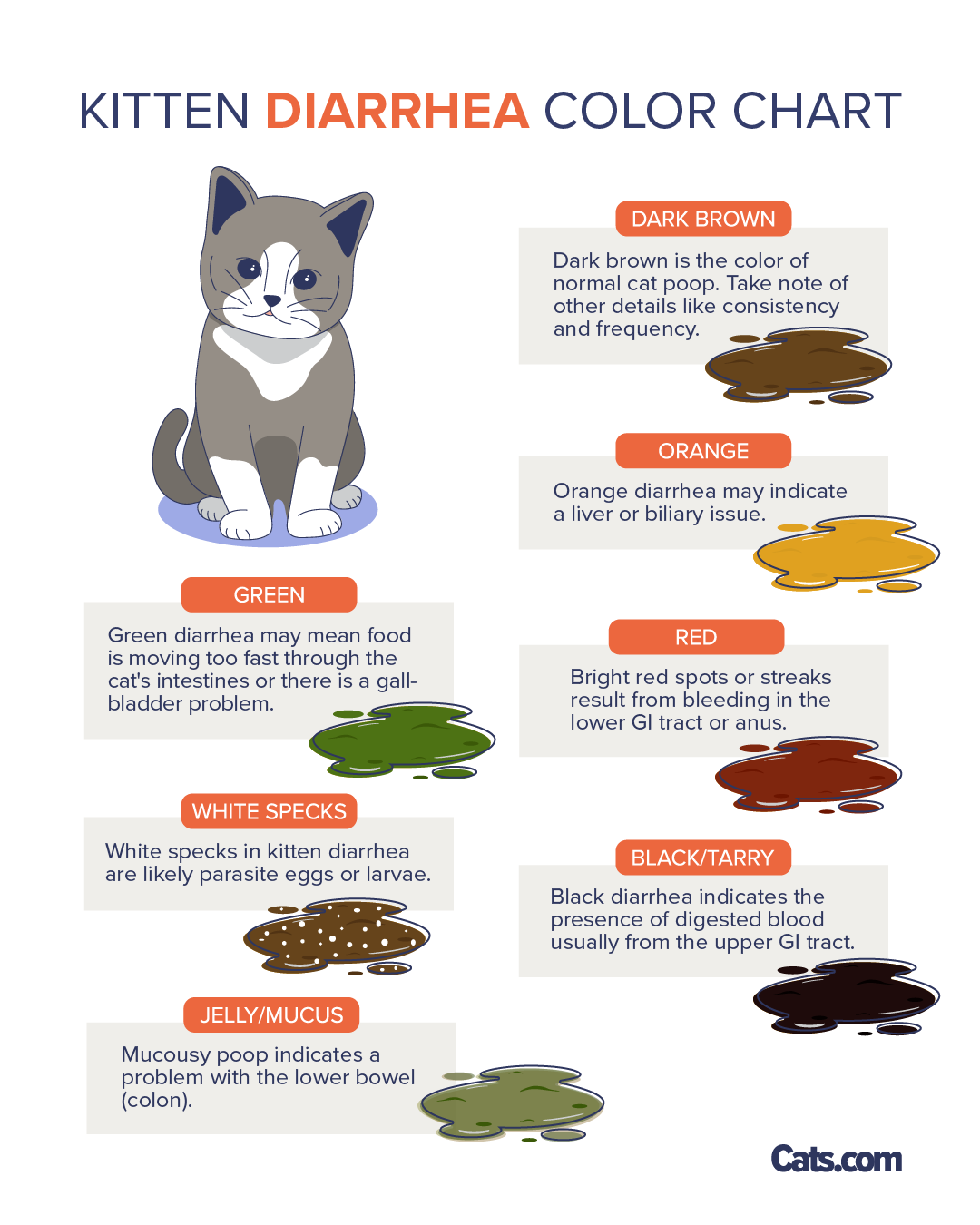
Hannah Green / Cats.com
If your kitten has diarrhea, it can be useful to note the color, as well as the consistency and frequency. Diagnosis cannot be made on color alone, but it can help. This might sound strange, but as a veterinarian, I really appreciate it when cat owners bring me a picture of the diarrhea, as it can provide me with many useful clues!
- Dark brown: This is the normal color for cat poop. Knowing the consistency, amount, and frequency could help further.
- Orange: This color might indicate a liver or biliary issue.
- Red: Bright red spots or streaks are due to bleeding from the lower gastrointestinal tract or the anus.
- Black/tarry: This indicates the presence of digested blood, usually due to a bleed in the upper GI tract.
- Green: This can be due to food moving too fast through the intestines or possibly a gallbladder problem.
- White specks: These are often parasite eggs or larvae, indicating a high worm burden.
- Jelly/mucus: Mucoidy poop indicates a problem with the lower bowel (colon).
Symptoms of Diarrhea in Kittens
Kittens often have softer and less well-formed stools than adult cats. However, a liquid, sludgy, or shapeless consistency indicates diarrhea. Kittens with diarrhea will also pass stools more frequently and with more urgency than usual. Apart from the looseness of the feces, you might notice differences in color, volume, and smell.
Other signs of illness that often accompany kitten diarrhea include:
- Vomiting
- Appetite loss
- Lethargy
- Behavioral changes, such as hiding away more
- Fever
Diagnosis of Diarrhea in Kittens
If your kitten has diarrhea, you might be wondering whether a trip to the veterinary clinic is necessary.
If a kitten has diarrhea but acts normal, is eating and drinking, and is energetic and alert, don’t panic. In these cases, I recommend waiting 24 to 48 hours to see if kitten diarrhea resolves before contacting a veterinarian.
However, there are a few exceptions to this rule. If you notice the following signs in addition to diarrhea, see your vet as soon as possible:
- If the kitten is younger than 4 months of age
- If the kitten has other symptoms, such as a lack of appetite, vomiting, fever, or pain
- If they have eaten a known toxin or something that they shouldn’t have ingested, such as string
- If the diarrhea contains fresh blood or is black and tar-like
- If the kitten seems dehydrated. Test for this by pressing your finger against their gums—they should feel moist. If the gums feel tacky or sticky, your kitten might be dehydrated. They might also be quiet and act weak.
If you need to bring your kitten to the vet, remember to take photos of the diarrhea if possible. The vet will perform a full physical exam and ask you questions about your kitten’s diet and home environment. Depending on how badly affected your kitten is, further investigation, such as stool samples, blood tests, X-rays, or ultrasound, might be necessary.
Treatment of Diarrhea in Kittens
A veterinarian might recommend several different actions for a kitten with diarrhea, depending on the likely cause, how sick the kitten is, and whether any other complications are present.
Mild cases of diarrhea will resolve with a bland, easily digestible diet that allows the gastrointestinal tract to rest, possibly alongside some probiotics. Most kittens will recover in a few days.
Certain problems require more aggressive treatments. For example, dehydrated kittens will need intravenous fluids, and those with infections might need antibiotic or antiparasitic medication. Kittens with digestive obstructions caused by eating objects, such as string or cat litter, might even need surgery. These more severe problems might take much longer to resolve, and some kittens are left with lifelong digestive issues.
Caring for Kittens With Diarrhea
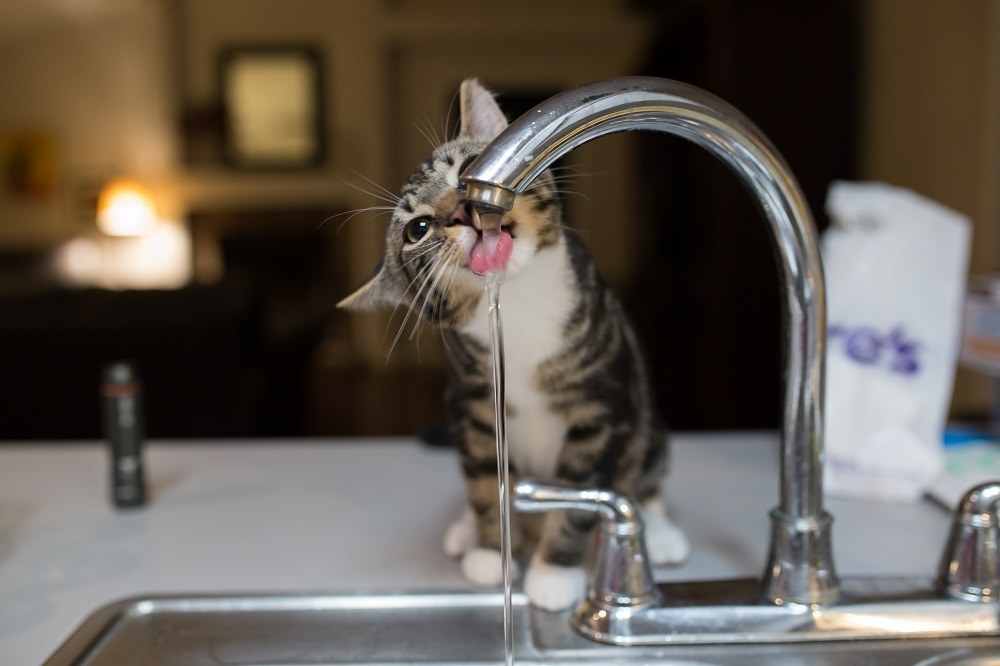
It’s important to keep kittens with diarrhea hydrated, so consider lots of different water sources. Cynthia Valdez / Shutterstock.com
It’s always unpleasant to see our pets unwell, and kittens are especially worrisome due to their age and small size. Here are some tips to help your smaller feline companion, including what to feed a kitten with diarrhea and how to keep them hydrated:
- Feeding: Never starve a kitten with diarrhea. Offer them small, frequent meals of something bland and easily digestible, such as plain boiled chicken breast or white fish. Avoid human foods and anything too rich or fatty, including treats.
- Hydration: Ensure your kitten has plenty of fresh water sources available. If they won’t drink, try adding low-sodium broth to their water, or add water to their food to increase intake.
- Rest: Kittens need lots of sleep, and this need is increased when they’re unwell. Provide warm and comfortable resting spots in safe spaces, and give them plenty of time to relax.
- Monitor: Keep track of your kitten’s bowel movements, and pay extra attention to any new symptoms, such as vomiting or loss of appetite.
- Probiotics: Some kittens might benefit from probiotics if they are prone to diarrhea. Discuss with your veterinarian if this might be something to consider for your pet.
How To Prevent Diarrhea in Kittens
Kittens are growing and developing, which means both their immune and digestive systems aren’t yet mature. This can make them vulnerable to conditions such as diarrhea, but there are ways to help prevent illness.
Kittens need a nutritious, balanced, and digestible diet—a high-protein one designed especially for growing kittens. Keep treats to a minimum and avoid human foods, especially dairy products. If you need to change your kitten’s food, do so very gradually over the course of a week or more.
Keep your home environment clean and practice excellent hygiene around all pets to prevent the spread of infections and parasites. Kittens benefit from regular health checks. Follow your veterinarian’s advice regarding preventative care, such as vaccinations and antiparasitic treatments.
